My Month in Corinth
- Grace M. Hermes

- Aug 10, 2022
- 5 min read
For the past four weeks, I have been living and working at the American School of Classical Studies in Ancient Corinth doing research for my Master's thesis. I am really interested in representations of gender in the ancient Mediterranean world and have recently become curious about healing in the ancient world. Beginning in the 5th century BCE, the god Asklepios became established as the god of medicine. In fact, the staff of Asklepios (the rod with two snakes wrapped around it) is still a symbol of medical professionals to this day! Patients would come to his temples to dedicate offerings and sleep overnight so that Asklepios would visit them in a dream to deliver a cure.
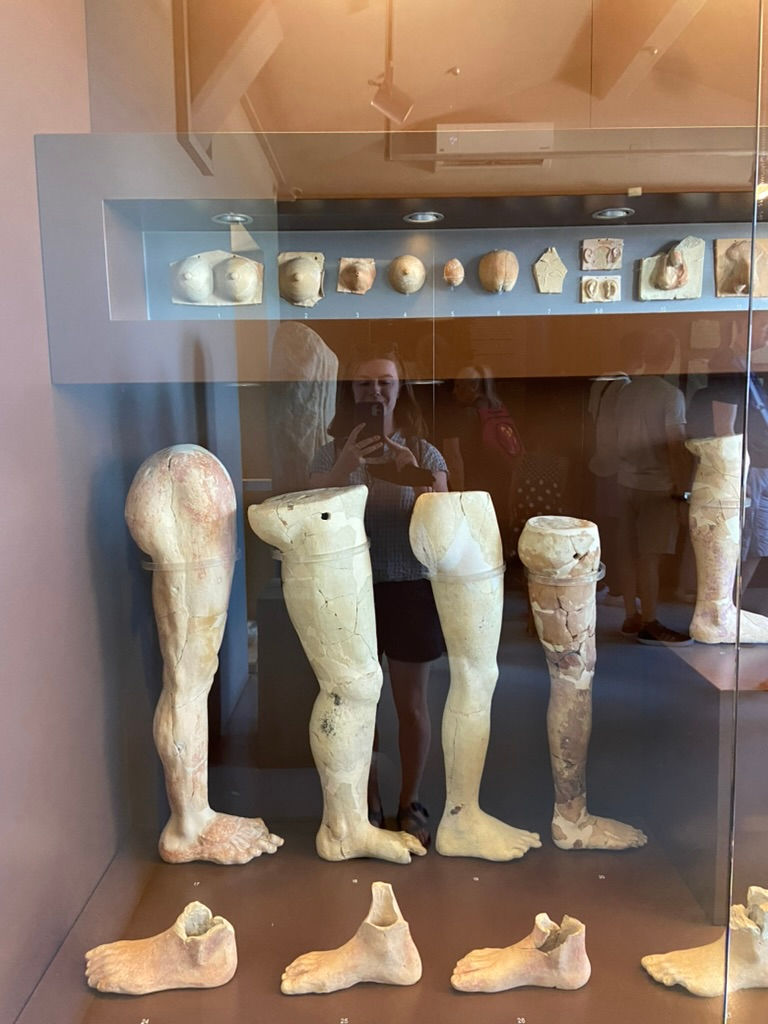
One type of offering that patients would place in the temples was the anatomical votive, aka life-sized terra-cotta body part. I have been working with the collection of anatomical votives in the Corinth Archaeological Museum and studying how and why they were painted. In the picture below you can see that the leg on the far left has traces of red paint remaining. I've been taking lots of macro photos to find tiny traces of paint and thinking about the trends I'm seeing. Some older sources claim that the votives were painted red or white to identify it as belonging to either a male or female patient. So without going too far into the weeds, these votives are what I am here to study.
This past spring I took a museum studies class and did a final project photographing and cataloguing new acquisitions for the Cornell Anthropological collection, and I was grateful for the preparation. It is both exciting and intimidating to be given the key to the storage room and told "go for it" when handling ancient artifacts! One thing I learned is that these votives are really heavy, especially the legs! I've gained such an appreciation for the craftsmanship of these objects since being here and have started to notice the subtle differences between them. Some are extremely detailed and life-like while others are more crude representations of body parts - potentially indicating the skill levels of different manufacturers or that only some people could afford the super detailed votives. But I can't give away all my thesis ideas just yet..!
My view on the way to work every day! 2. The museum work room. 3. Sunset on the ouzo terrace
Outside of the museum, life in Greece is pretty great! I've gotten to spend lots of time walking around the expansive site and getting to know the tight-knit community of

scholars who work at Corinth. I'm staying at the American School guest house where we have meals together and cocktail hour before dinner in the evenings. Various scholars and students have come and gone in the past few weeks, including several of the people who have written the foundational books about ancient Corinth. Everyone chit-chats about what they've been working on that day and chimes in with ideas on each other's projects. It's pretty awesome to get input from such established people in my field!
Since being in Greece I've managed to carve out a little time for travel. I took a solo trip to Athens my first weekend and did all the important archaeological sight seeing! My first stop was the Acropolis which was absolutely incredible (of course). It was kind of surreal to be seeing all of these things in person that I've read so much about. I also visited the Acropolis Museum and the National Archaeological Museum.
Below is a little collage of some of my favorite sights:
1. The Asklepieion of Athens. There were anatomical votives at this site
2. The Odeon of Herodes Atticus set up for a concert. The city of Athens does a summer concert series at the Odeon and at the Theater of Dionysus!
3. Me in the door of the first gate of the Acropolis.
4. The Parthenon!
5. Selfie in the Acropolis Museum with the Parthenon way in the background.
The next day I went to the Agora of Athens and Hadrian's Library. The Agora has been being excavated since the 1890's and the areas that are complete have been replanted with local trees and bushes which makes the place feel like part archaeological site - part botanical garden. My favorite part was seeing the Temple of Hephaestus that overlooks the agora. This is the best preserved Doric temple remaining which was pretty incredible to see! Hephaestus is the god of craftsmanship, and there were several pottery production sites near the temple. Hadrian's Library is just a short distance from the agora and is a great example of how buildings have been reused through the ages. While the original purpose was to be a library and center of learning, the site eventually came to house three separate churches in the Byzantine period!
Below:
1. Looking down over the agora. 2. One of the monumental sculptures of the agora. 3. Outside the Temple of Hephaestus. 4. The outside of Hadrian's Library. 5. Remains of a tetraconch church in the library courtyard. 6. A library cat resting on one of the marble blocks!
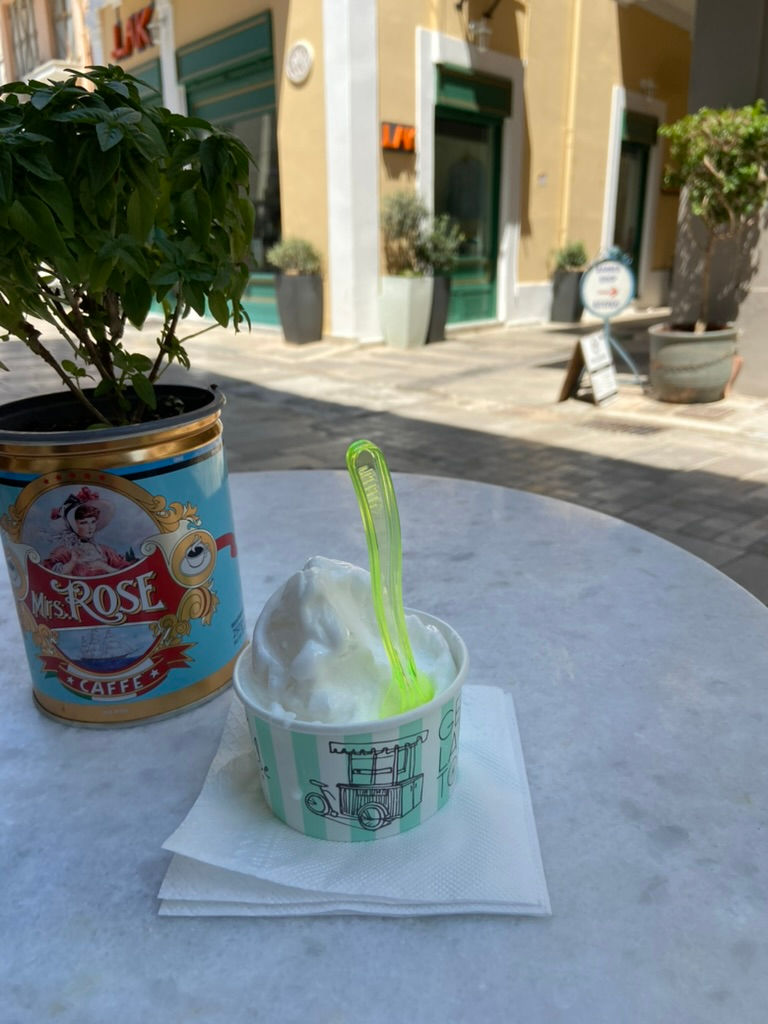
I also visited Nafplio, a town about an hour away from Corinth known for the enormous Venetian fortress and having amazing gelato! Nafplio is right on the coast, so the view from Palamidi fortress was pretty amazing! After exploring the different bastions and fortifications, I hiked down the 999 steps (yes that's the actual number) into the center of town. I visited the small archaeological museum, but spent most of my time wandering the many little alleyways and streets of the city. Of course, I stopped for gelato and it was delicious.
Traveling solo in Greece has been an empowering experience. While it can be a little lonely at times, I really enjoy getting to

make my own schedule, see what I want to see, and go at my own pace. Thankfully the train and bus system in Greece is really easy to use, so I've been able to get to my weekend trip locations without much hassle.
Doing my research at the Corinth museum has also required a new level of independence and trust in myself. There's no professor or advisor here to make suggestions, and when problems arise it has been up to me to solve them. I feel like I've gained a lot of confidence in my own academic abilities this summer while doing this research, and I'm excited to get started writing my thesis when I get back to the states.
As I enter my last few days in Corinth, I'm feeling incredibly grateful for everything I've learned and gotten to see. I'll definitely be planning to return to Greece as soon as I can.
Thanks for reading!
-GMH






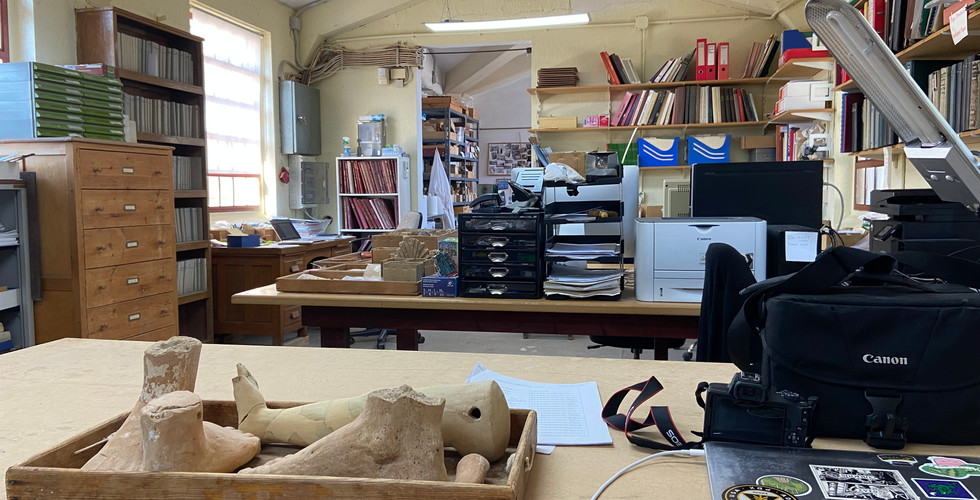




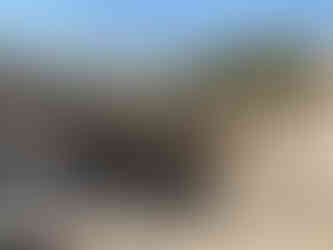








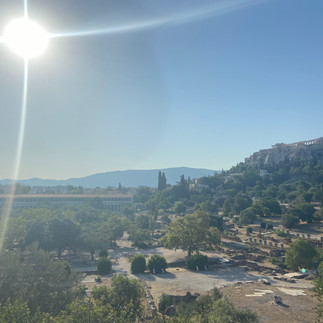









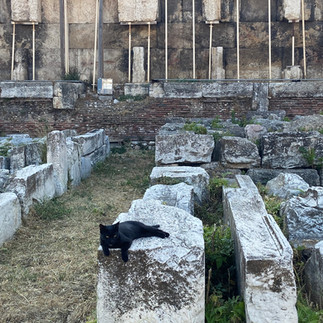



Comments